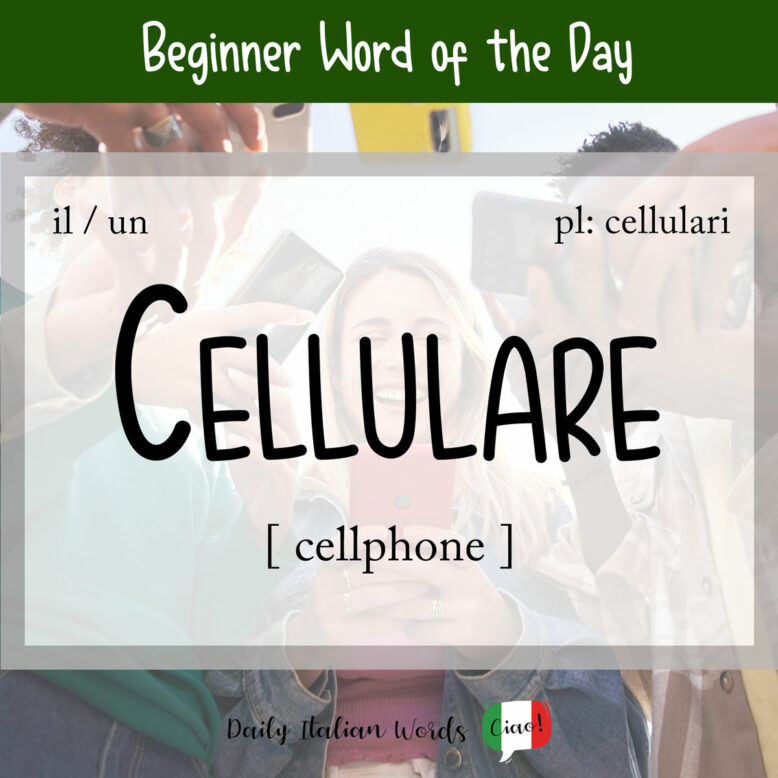In Italian, the portable device we use to make phone calls, browse the Internet, take photos and send messages, is called a cellulare.
It comes from the Latin word cellularis, which in turn derives from the word cellula meaning ‘little chamber’.

Cellulare is a masculine noun. The plural is cellulari.
un cellulare
il cellulare
dei cellulari
i cellulari
Some common terms associated with the word cellulare include:
- numero di cellulare = cell phone number
- caricatore per cellulare = cell phone charger
- connessione del cellulare = cell phone connection
- custodia per cellulare = cell phone case
- porta cellulare (da auto) = cell phone holder (for the car)
Uffa, la pagina non si sta caricando! Eppure ho tre tacche sul cellulare!
Darn, the page isn’t loading! Yet I’ve got three bars on my cell phone!

When talking specifically about smartphones as opposed to other kinds of cellulare phones, Italians tend to use the English term smartphone, pronounced with an Italian accent of course. Most notably, the word-initial sm- becomes zm- in Italian.
Another colloquial term for cellulare you are bound to encounter is telefonino which literally means ‘little telephone’.
Non mi ricordo dove ho lasciato il telefonino!
I can’t remember where I left my cell phone!
Did you know that…?
In Italian, the expression “fare uno squillo” means to call someone, let the phone ring once or a couple of times, and hang up. Italians do this when there is no need to actually speak to the other person – say, for example, if you are meeting a friend at a restaurant and simply want to let them know you’ve arrived.
Ti faccio uno squillo quando arrivo! – Ok, grazie!
I’ll give you a ring (implied: but don’t pick up) when I get there! – Ok, thanks!
Cellulare has other meanings. As a noun, it can refer to a transport van or police van for moving prisoners.
As an adjective, it can refer to cellular, relative to a cell in biology. For example, a nucleo cellulare is a cell nucleus.

Heather Broster is a graduate with honours in linguistics from the University of Western Ontario. She is an aspiring polyglot, proficient in English and Italian, as well as Japanese, Welsh, and French to varying degrees of fluency. Originally from Toronto, Heather has resided in various countries, notably Italy for a period of six years. Her primary focus lies in the fields of language acquisition, education, and bilingual instruction.


